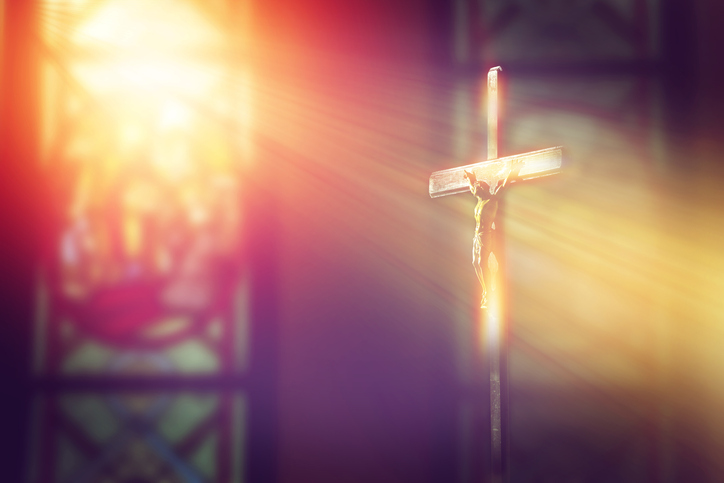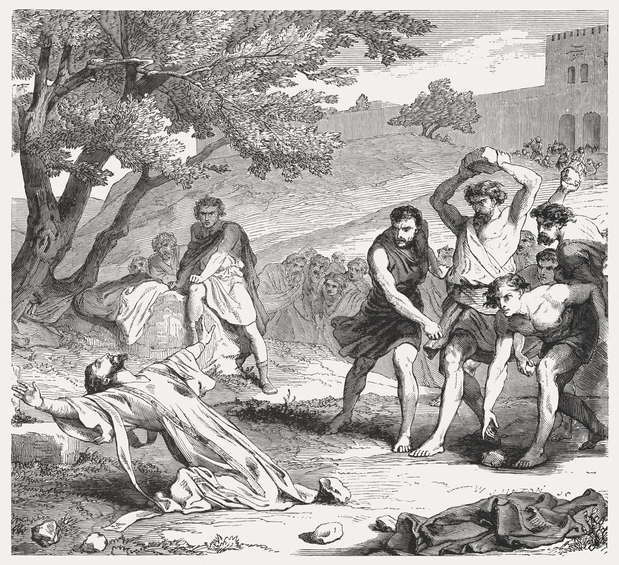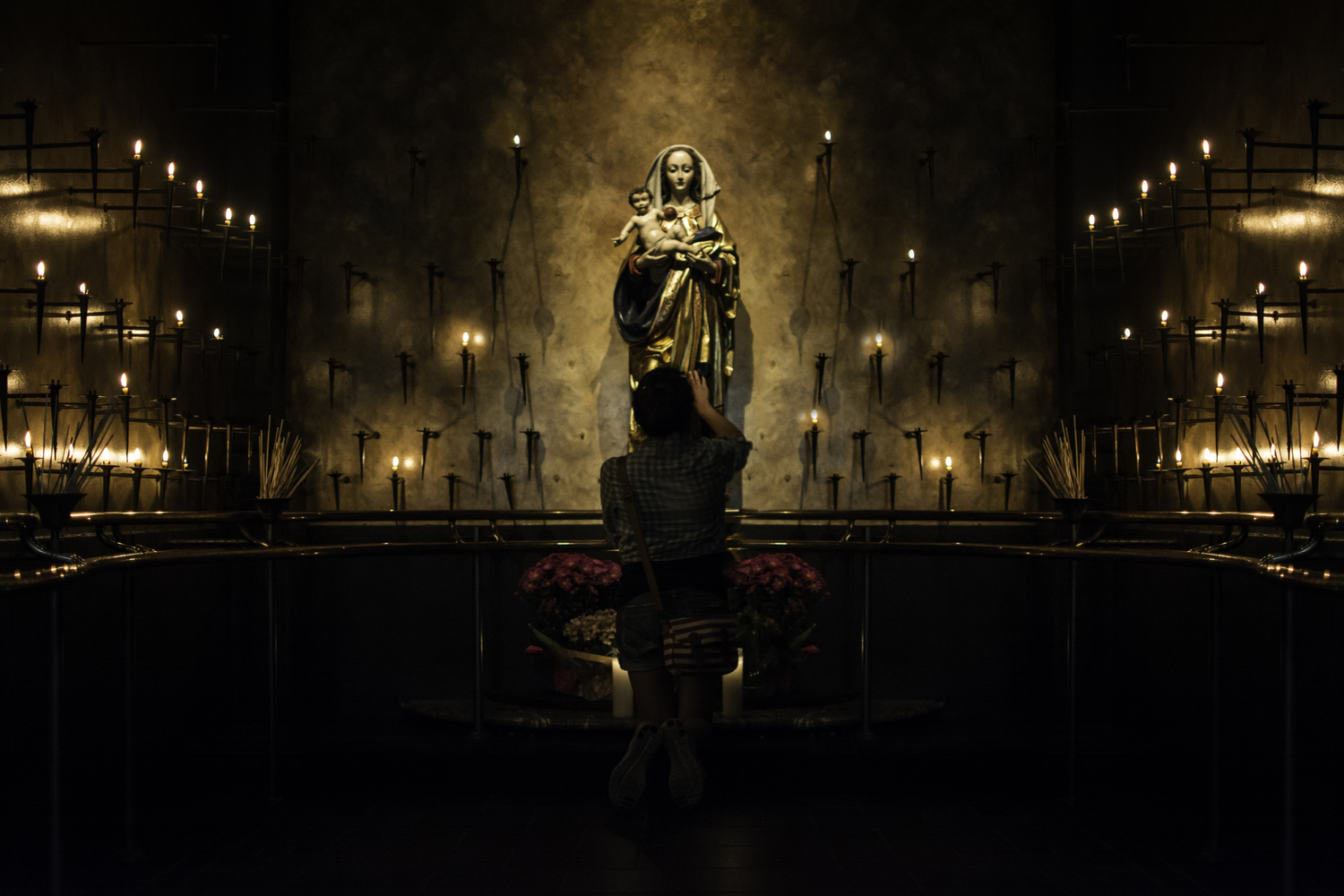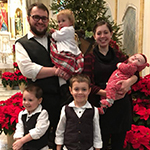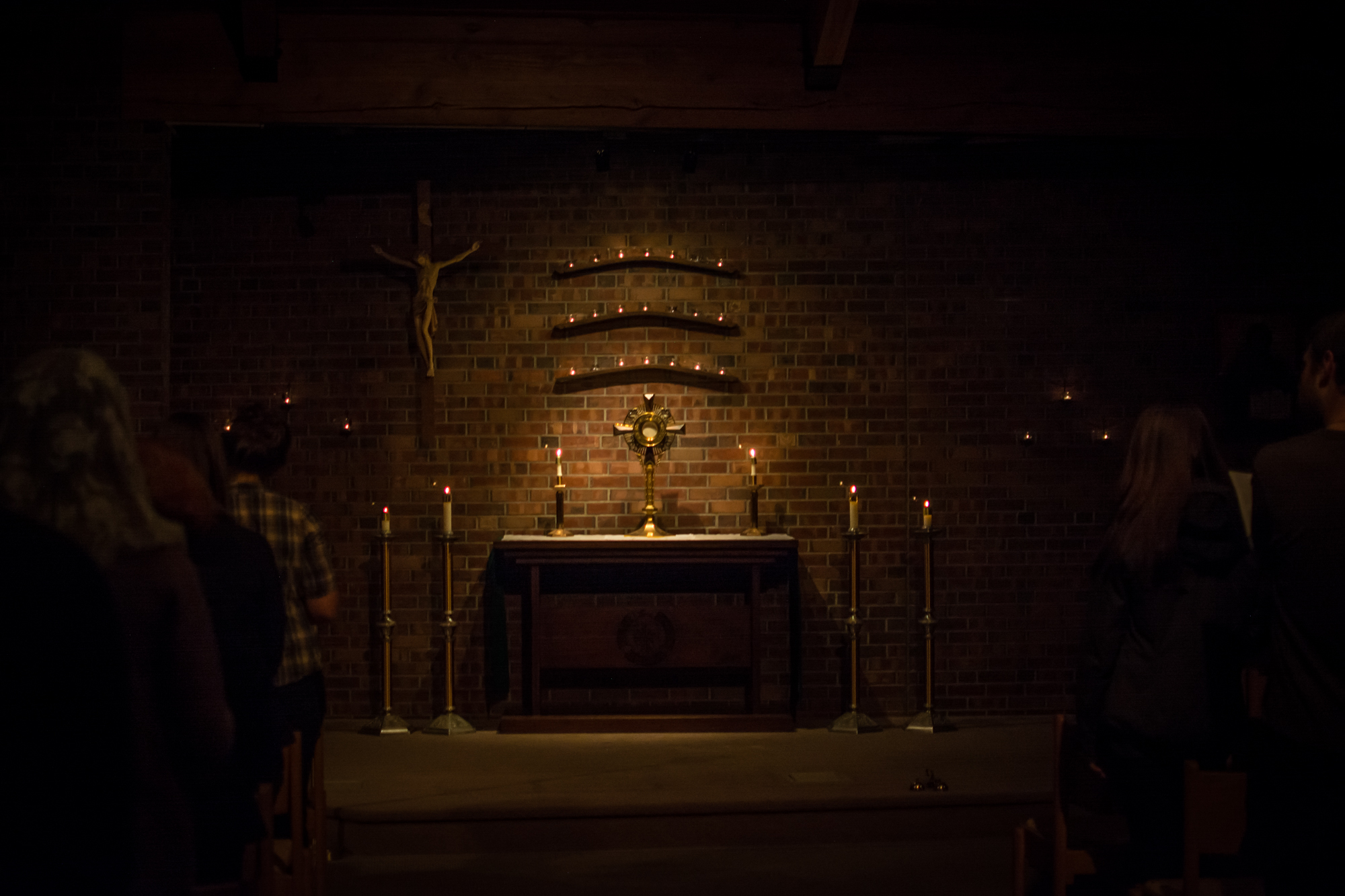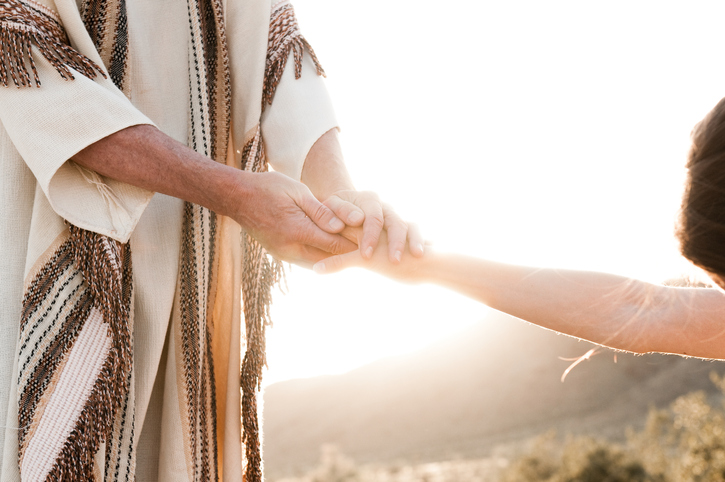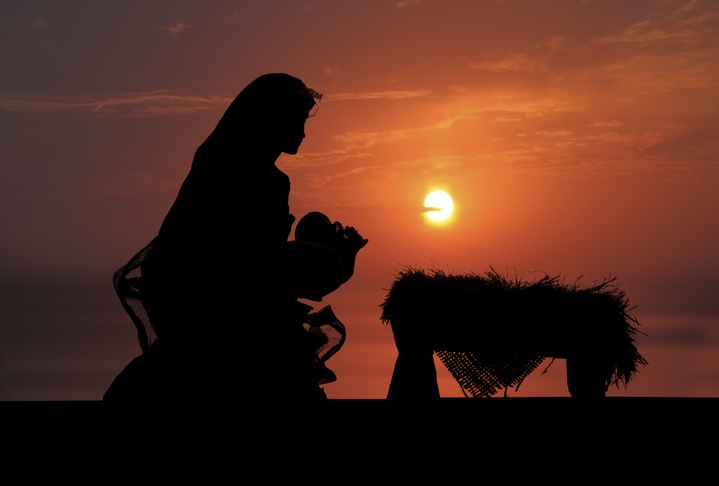My younger brother is easily 20 lbs. heavier than I am. Pure muscle. His gym is considering changing his billing from a monthly membership to a living-space rent.
By his physique time dedication to exercise and his diet (which sometimes includes putting peanut butter in a blender, yuck), any person could tell that his personal health is of the utmost importance. Even his friends introduce him to others as “G.I. Joe” because of his action-figure-shaped build.
At community events, friends and family will often mistake me for my brother or vice versa because of our facial resemblances. However, there is no mixing up names when we go to the beach because my brother looks like Superman and I like Fred Flintstone.
I love the first reading because it spells out very simply how to recognize a Christian.
“Whoever says he is in the light,
yet hates his brother, is still in the darkness.”
(1 John 2:9)
Now, I go to the gym… pretty regularly. I’ve been enough times to earn two free t-shirts. But I’m not nearly as invested as my brother is (which is plain to see). I haven’t changed my diet. I still eat my ice cream and drink my coffee with loads of sugar. I also only do about 10 minutes on the stationary bike… which pales in comparison to my brother’s workout routine.
I do go to the gym, I do exercise, but is it bearing any good fruit? It is tempting to avoid the work of worship like I do exercise.
“Yes, I’m a parishioner. Yes, I say my Our Father before bed. Yes, I show up to mass.”
Great. Good. Keep doing all of the things. But how is your spiritual health? I like to think the measure of a person’s hate is akin to corporal excess weight;
it is unhealthy and it impedes you from true freedom.
Furthermore, isn’t it an absurd sight to see a lifelong member of a gym for like 40 or 50 years and they are still unhealthy?
I’ve listened to many an atheist and apostate, and a number of them have referred to a particular person or experience, which has turned them away from the church.
Hate is antithetical to the Christian lifestyle.
We cannot be Christian and hate just as my brother cannot maintain his physique and eat a pint of ice cream each night (but maybe on his cheat day though).
Just as my brother is easily recognized for his physique, so too should we Christians be recognized by our love.
If you have hate in your heart… turn to Christ to have it transformed.
Don’t stay there.
Do the ‘work’ of worship.
Live in the light.

During the week, Matthew Juliano is a mentor for individuals who have developmental and intellectual disabilities. He has started a Youtube Series that explains and raises awareness about the work he does, which can be found HERE. On the weekends, he is a drummer for Full Armor Band. You can find more content by Matt and his band at www.fullarmorband.com.

